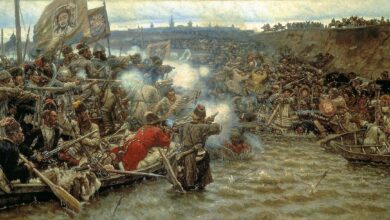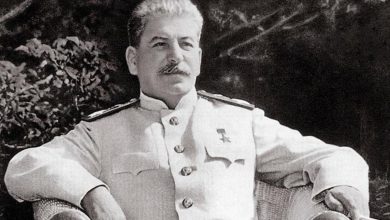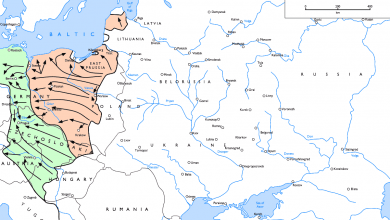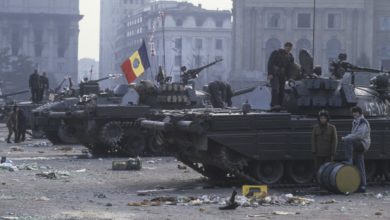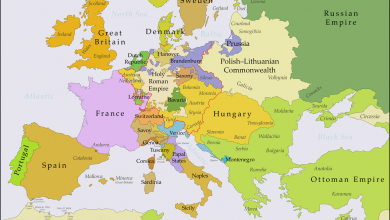On this day in 1942: Operation Winter Storm

On this day in 1942, German forces began Operation Winter Storm. This was meant to be an attempt at relieving the German Sixth Army, trapped in Stalingrad.
The Soviet Operation Mars (started on November 25), had thus far been a costly failure, so the upcoming Operation Uranus became more important, it had to succeed. Thankfully, Hitler made a decision that aided the Soviets. The German Sixth Army was to remain in Stalingrad, be supplied via air drops, and rescued by an offensive from the West. This meant that the Soviets needed not care about threats within the ring they had slammed down around Stalingrad. They could instead focus their attention on external threats.
An important reason behind Hitler’s thinking was the experiences from the Winter of 1941-42. Then, even more German forces had been cut off by Soviet counter-offensives but almost all of them had been supplied from the air and eventually relieved by land forces. He assumed this could be done again, but he failed to consider that the Sixth Army was considerably larger (over 200.000) than in any of the previous cases.
Hermann Göring, commander of the Luftwaffe, promised that airlift would be possible to keep the encircled Sixth Army well supplied. In the meantime, Field Marshal von Manstein prepared an operation to push through to Stalingrad and release the Sixth Army from their encirclement. This operation was dubbed Unternehmen Wintergewitter – Operation Winter Storm.

As the Germans proceeded with their plans, the Red Army prepared a plan of their own, dubbed Operation Saturn. As planning progressed, it became clear that the ambition of the plan had to be reduced. This meant that the operation that were actually carried out was called Little Saturn, and it was aimed at the Italian 8th Army that defended territory along the Don between Novaja Kalitva and Vesjenskaja. If this attack were successful the road to Rostov would be opened, potentially spelling a major victory for the Red Army.
It proved difficult for the Axis to gather troops for Operation Winter Storm. The previous Soviet operation, Operation Uranus, had achieved what it set out to do, and more. The German allies were crushed on almost every front. The Romanian, Hungarian, and Italian divisions suffered tremendously. The collapse of the Romanian line, particularly, forced Germany to send troops to fill in the gap. Where Mars had failed (and would largely be passed to the trash bin in post-WW2 literature), Uranus succeeded.
However, new troops to fill that gap were absent for Germany, they simply could not keep a defensive line and build up strength for Operation Winter Storm with what they had. As such, divisions from the West were sent East, including the 6th Panzer-Division which resided in France. Travel would take time and so, Winter Storm could only begin on Decemeber 12. By that point, Uranus had already been crowned a success and Mars was still inflicting heavy casualties on the Axis (and the Red Army as well).

Von Manstein had reserved the LVII (57th) Panzer Corps for Operation Winter Storm. The Panzer Corps consisted of three Panzer-Divisions, the 6th, the 17th, and the 23rd. Of these, the 6th was the strongest. The 17th division was held in reserve by Hitler, but despite these limitations, Winter Storm began hopefully for the Germans. During the first two days, the LVII Corps advanced to the river Aksaj, around 40 km from their starting point at Kotelnikovo. After that, resistance stiffened, and von Manstein asked Hitler to release the 17th Panzer-Division. Hitler stalled until December 16, and then the LVII Corps could continue its advance, reaching the river Mysjkova, around 50 km southwest of the encircled Sixth Army.
However, Myskjova was the furthest the LVII Corps would reach. The same day that the 17th Panzer-Division was thrown into Operation Winter Storm, the Soviet Southwestern Front initiated Little Saturn. Like the Romanian 3rd and 4th armies four weeks earlier, so did the Italian 8th Army collapse under the sheer weight of Soviet forces. The road to Rostov was open for the Red Army, threatening not only the German Sixth Army, but also their Army Groups Don and A. Little Saturn proved to be the mortal blow for Winter Storm. To halt Soviet forces that poured through the gap left by the Italians, divisions had to be moved quickly. This meant that German reinforcements were directed there instead of increasing the power of Winter Storm.
The failure of Operation Winter Storm was the final chance at saving the Sixth Army in Stalingrad. While most historians today agree that the war was lost for Germany already at the failure of Operation Typhoon outside Moscow (some argue heavily that war was lost as soon as Germany invaded), there’s no denying that the loss of the Sixth Army, and Stalingrad, was a breaking point in the war. Many people believe the fierce battle for the city was a contest of wills between the two dictators, and that Stalin was determined to win because the city bore his name.

In reality the city was of prime strategic importance. It controlled the narrow bottleneck of land between the Lower Don to the west and the Lower Volga to the east. This bottleneck directly and indirectly controlled passage to and from the great oilfields at Maikop, Grozny and Baku.
Stalingrad was a catastrophic defeat for Germany. Soviet oil was no longer compromised, while conversely Germany’s own supply would continue to dwindle.With Stalingrad the Soviet front stabilised and the Soviets were increasingly able to fight the Germans on equal terms.

